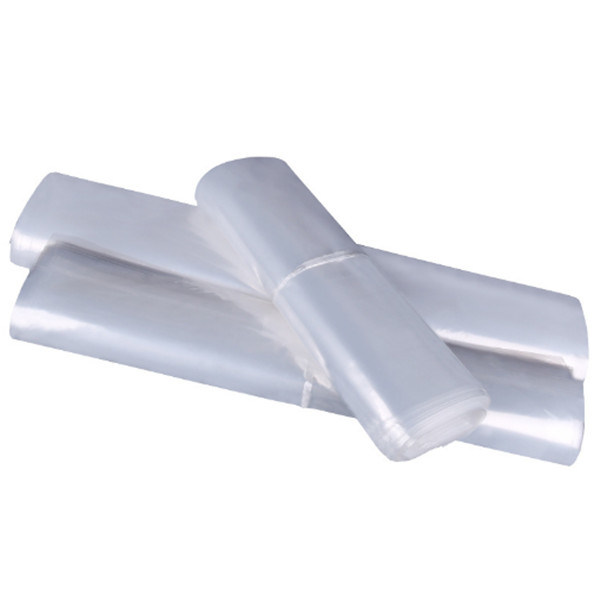Unlocking the Potential of Liner Bags: A Comprehensive Guide
In the world of packaging, the importance of liner bags, especially those made from polyethylene (PE), cannot be overstated. These seemingly simple products play a crucial role in a variety of industries, from agriculture to chemicals, safeguarding goods and ensuring the efficiency of operations. In this comprehensive guide, we will delve into the world of liner bags, exploring the various applications, types, and the many advantages of using polyethylene (PE) liners. By the time you finish reading, you'll have a profound understanding of liner bags and how they can be an invaluable asset to your business.
Liner Bags: The Unsung Heroes of Packaging
Polyethylene (pe) bags are the unsung heroes of the packaging world, silently contributing to the protection, preservation, and efficient handling of a wide range of products. These flexible bags, designed to fit into various containers, are commonly used to prevent contamination, leakage, or damage to the contents. They act as a protective barrier between the product and the container, ensuring that the quality of the goods remains intact.
The Versatility of Polyethylene Liners
Polyethylene (PE) Bags: A Brief Overview
Polyethylene, often abbreviated as PE, is a popular choice for polyethylene liners due to its exceptional versatility and durability. PE bags are made from a type of plastic known for its flexibility, resistance to moisture, and superior strength. This makes them ideal for a multitude of applications. Let's explore the various uses of PE bags.
Agriculture
In agriculture, where products like grains, seeds, and fertilizers are often transported and stored, liner bags play a pivotal role. PE bags protect these goods from moisture, pests, and contaminants, ensuring they reach their destination in optimal condition.
Chemical Industry
The chemical industry relies heavily on polyethylene liners to transport and store various chemicals. These bags prevent spillage and contamination, making them a crucial component in chemical manufacturing and distribution.
Food Industry
In the food industry, maintaining the quality and freshness of products is paramount. PE bags are used to line containers and ensure that food items, whether grains or liquids, remain uncontaminated and safe for consumption.
Construction
In the construction sector, polyethylene liners are employed to transport construction materials such as sand, cement, and gravel. PE bags provide a protective barrier that prevents moisture infiltration and maintains the integrity of these materials.
Healthcare
In the healthcare industry, the need for sanitary and secure packaging is non-negotiable. Liner bags made from PE are instrumental in the safe disposal of medical waste, ensuring that hazardous materials are contained and handled safely.
Types of Liner Bags
Liner bags come in various types, each tailored to specific requirements. Understanding these types can help you make the right choice for your packaging needs.
Form-Fit Liner Bags
Form-fit liner bags are designed to fit the shape of the container precisely. This eliminates excess space and reduces the risk of contamination. They are commonly used for liquids and fine powders.
Gusseted Liner Bags
Gusseted liner bags have pleats or gussets on each side, allowing them to expand and accommodate a range of container sizes. These bags are versatile and cost-effective.
Open-Top Liner Bags
Open-top liner bags are designed for ease of use. They can be easily inserted into containers and are often used for large items that do not require a precise fit.
Bulk Liner Bags
Bulk liner bags are specially designed for the transportation of bulk materials such as grains, chemicals, and powders. They are known for their strength and durability.
Advantages of Using Polyethylene Liners
1. Moisture Resistance
PE bags are highly resistant to moisture, making them perfect for products that need protection from dampness. Whether you're storing agricultural produce or chemicals, these liners ensure your goods stay dry.
2. Versatility
The adaptability of PE liners is one of their standout features. They can be used in various industries and with a wide range of products, from food items to construction materials.
3. Durability
PE liners are built to last. Their robust construction means they can withstand the rigors of transportation and storage without tearing or puncturing.
4. Cost-Effective
In addition to their durability, PE liners are also cost-effective. Their ability to prevent contamination and damage can save businesses money in the long run.
Conclusion
Liner bags, particularly those made from polyethylene (PE), are indispensable in today's industrial landscape. They offer a versatile and cost-effective solution for protecting and preserving a wide variety of products. By understanding the different types of liner bags and their advantages, you can make informed decisions for your packaging needs. Embrace the world of liner bags and elevate your business's packaging game.

.png)

.png)
Comments
Post a Comment